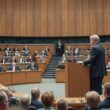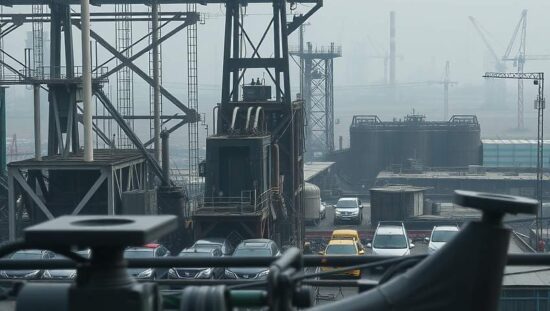Germany’s largest employers’ association for the metal and electrical industries, Gesamtmetall, is increasingly characterizing the Social Democratic Party (SPD) as a significant impediment to the nation’s economic recovery, escalating tensions within the ruling coalition government. Oliver Zander, CEO of Gesamtmetall, delivered a sharp critique in an interview with the “Neue Osnabrücker Zeitung”, accusing the SPD of acting as a “brake” on urgently needed social reforms.
Zander argued that the slow pace of Germany’s “economic transformation” is directly attributable to the SPD’s reluctance to embrace measures deemed necessary to bolster competitiveness. He warned that without significant progress in reforming the welfare state – encompassing areas like citizen’s income, pensions and healthcare – Germany risks weathering its “longest economic crisis since the founding of the Federal Republic”. He explicitly linked economic stability to political stability, stating that a struggling economy inevitably undermines government longevity.
The association is calling for the Christian Democratic Union (CDU), the other major partner in the coalition, to exert greater pressure on the SPD to implement deeper-reaching reforms, moving beyond superficial adjustments. Specifically, Zander emphasized the need to address rising social security contributions, which he deems unsustainable and detrimental to Germany’s ability to compete globally. He underscored the importance of ensuring citizens perceive value for their payments. While expressing support for maintaining the social safety net, Zander highlighted the prevalence of “inefficiency” within the system.
Remarkably, Zander’s criticisms extended beyond purely economic concerns. He commented on the ongoing debate within the CDU regarding the “firewall” separating the party from the far-right Alternative for Germany (AfD). Rather than clinging to this symbolic barrier, Zander urged the CDU to engage in a detailed analysis of the AfD’s policy platforms and their potential impact. He asserted a critical link between maintaining this firewall and implementing reform, declaring that resistance to reform is inherently incompatible with preserving the barrier. His statements reflect a growing sentiment that ideological rigidity is hindering Germany’s ability to address its pressing economic challenges and politically navigate a complex and increasingly polarized landscape.





